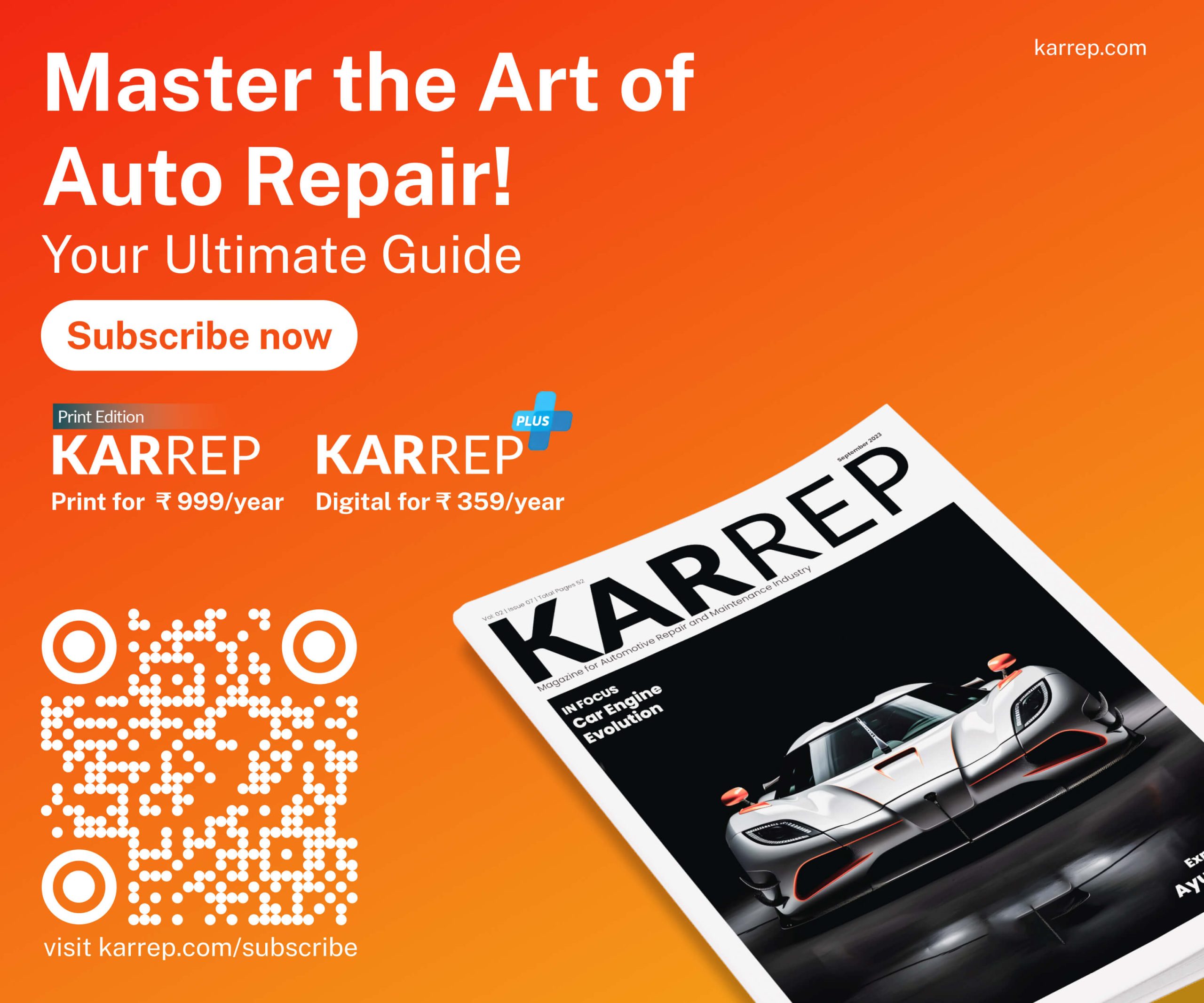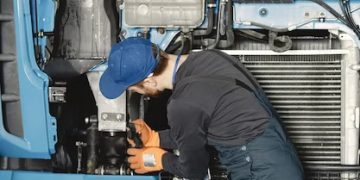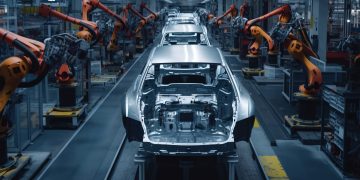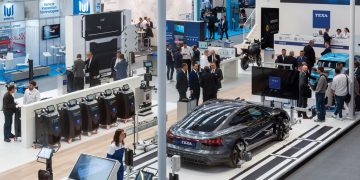As a skill development council and apex body for the automotive industry, how would you characterise the current state of the Indian automotive aftermarket?
The Indian automotive aftermarket is a dynamic and growing industry. As per the Automobile Component Manufacturers Association (ACMA) forecast, auto component exports from India are expected to reach US$ 30 bln by 2026. The auto component industry is projected to record US$ 200 bln in revenue by 2026, and it employs millions of people. The industry is also expected to continue to grow in the coming years, as the number of vehicles on the road in India continues to increase. On the other hand, the automotive aftermarket is facing a few challenges, including a shortage of skilled workers, use of spurious parts, a lack of standardisation, and the rise of e-commerce. The automotive industry is a labour-intensive industry, and the demand for skilled workers is outpacing the supply.
Another important initiative taken up by the government is Right to Repair. This has set off a movement to ensure repair and reuse of parts in automobiles. Customers are expected to have options for refurbished parts for certain categories as well.
Despite the challenges, the Indian automotive aftermarket has the potential to grow significantly in the coming years. The government’s focus on manufacturing and the growing demand for automotive services will create opportunities for businesses in the automotive aftermarket. However, businesses will need to address the challenges of the sector to succeed.
How is the Indian automotive aftermarket affected by the scarcity of skilled workers, which has become a major obstacle for numerous industries?
The scarcity of skilled workers has become a major obstacle for the Indian automotive aftermarket, impacting its operations and growth. This shortage adversely affects the industry in several ways. Firstly, the quality of services provided can suffer, leading to decreased customer satisfaction and potential safety concerns. Secondly, the rapid technological advancements in the automotive sector, such as electric and hybrid vehicles, require skilled workers to handle complex systems and perform efficient repairs and maintenance.
The scarcity of skilled workers hinders the industry’s ability to adopt and adapt to these advancements. Moreover, it poses challenges for training and development efforts, as it becomes harder to provide adequate upskilling opportunities for the existing workforce and attract new talent. Domestic auto industry is faced with the challenging task of bridging the yawning skilled worker gap of 41.5 mln positions between 2019-2025, as per reported by India Auto Inc.
ASDC is committed to addressing the problem of the scarcity of skilled workers in the Indian automotive industry by collaborating with the automotive industry, and educational institutions. We are developing training programmes, promoting standardisation, and supporting the growth of automobile sector. By working together, we aim to create a vibrant and sustainable automotive aftermarket in India.
In your expert opinion, what are the underlying causes of the shortage of skilled workers in this industry, and what do you see as viable solutions to this challenge? Additionally, how can industry players work with educational institutions and training programme s to develop a pipeline of skilled workers for the future?
I believe that the shortage of skilled workers in the automotive industry can be attributed to various factors, with primary reasons including a lack of interest among the youth, outdated curriculum before the New Education Policy (NEP-2020), and insufficient training programmes before Skill India Mission. The perception of the industry as a blue-collar field limits the inflow of new talent. Additionally, the automotive industry is experiencing rapid technological advancements, such as electric vehicles, and hybrid cars. The industry requires a workforce that is well-versed in these emerging technologies. However, there is a shortage of professionals with expertise in areas like IoT, mechatronics, and electric vehicle technology.
There are several ways that industry players can work to develop a pipeline of skilled workers. One way is to provide financial support under the CSR (Corporate Social Responsibility) for training programmes. This can help to make training more accessible to students and to ensure that the programmes are high quality. Another way is to provide internships and apprenticeships to students.
This can give students real-world experience and help them to develop the skills they need to be successful in the workforce. Finally, industry players can work with ASDC and other educational institutions to develop curriculum that is relevant to the needs of the industry. This can help to ensure that students are learning the skills that employers are looking for.
In the context of the current automotive landscape, how would you describe the significance and relevance of the Automotive Skills Development Council (ASDC)? What role does the ASDC play in fostering the growth of the automotive industry, and what are some of its most notable achievements and initiatives in this regard?
As the apex body for skill development in the automotive industry, ASDC has been actively involved in several initiatives and collaborations to promote skill development and foster growth in the automotive industry. We achieved a remarkable milestone by becoming the first Skill Sector Council (SSC) to have more than 1 lakh apprentices enrolled in one year. This achievement demonstrates the effectiveness and impact of ASDC’s apprenticeship programmes in creating industry-ready professionals.
To encourage healthy competition and identify talented individuals, ASDC initiated the National Automotive Olympiad, which is now in its second edition. This nationwide competition showcases participants’ skills and knowledge in various automotive disciplines. Recognising the importance of upskilling in the Electric Vehicle (EV) segment, ASDC launched a specialised upskilling programme for e-bus technology and has been conducting training programmes across different parts of the country. These programmes aim to equip professionals with the skills and knowledge needed to meet the growing demand for EVs.
ASDC has launched numerous skill development programmes , established skill training centres and centres of excellence, and implemented training programmes across the automotive value chain. Their focus is on attracting potential candidates and equipping them with the necessary skills. ASDC is working closely with technology partners to understand the dynamic workforce requirements of the industry and accordingly develop classroom and digital learning programmes.
Notable achievements and initiatives of ASDC include addressing skill challenges in the automotive industry, integrating skills with academic and career pathways, and developing expertise in areas like mechatronics, IIoT, 3D printing, AI, EV, and emerging technologies. ASDC’s mission to develop skilled and confident human capital is crucial for the growth of the automotive industry in India.
Training unorganised workshop employees can be a challenging undertaking, particularly in a country as diverse as India, where a range of languages and work cultures exist. How has ASDC approached this challenge, and what specific initiatives or programmes has it implemented to address the need for upskilling in this segment of the workforce?
ASDC recognises the challenges involved in training unorganised workshop employees in a diverse country like India, where different languages and work cultures exist. To address this challenge, ASDC has collaborated with industry partners, associations, and vocational training institutes to establish skill training centres across the country. These centres serve as hubs for providing training and skill development programmes specifically tailored to the needs of unorganised workshop employees. By partnering with local stakeholders, ASDC can leverage their expertise and resources to effectively train and upskill the workforce.
To enhance accessibility and convenience, ASDC has embraced technology-driven learning methods. E-learning courses, online modules, and virtual training platforms have been developed to reach a wider audience, including unorganised workshop employees. These digital initiatives enable flexible learning, allowing employees to acquire new skills at their own pace and convenience.
Additionally, ASDC organises skill development programmes and workshops directly at workshop locations, bringing training opportunities closer to the employees. This approach eliminates logistical barriers and ensures maximum participation from the target audience.
In the context of ASDC’s mission to promote skill development in the automotive industry, how crucial is the role of partnerships with various stakeholders such as academic institutions, training centres, industry players, and CSR initiatives? How does ASDC prioritise and select its partners, and what are some of the key factors that determine the success of these partnerships?
Partnerships with academic institutions, training centres, industry players, and CSR initiatives bring together the collective strengths, expertise, and resources needed to drive meaningful and sustainable skill development initiatives. Academic institutions play a vital role in providing theoretical knowledge and technical expertise to aspiring professionals. Collaborating with reputed universities, colleges, and vocational training institutes allows ASDC to design and implement industry-relevant curriculum, leverage academic infrastructure, and tap into the talent pool of students.
Training centres serve as the frontline for skill development. Partnering with training centres provides ASDC with a wide network of facilities and trainers to deliver practical and hands-on training. These centres help bridge the gap between theory and practice, ensuring that trainees develop the necessary skills and competencies required by the industry. While, industry players, including automotive manufacturers, suppliers, and service providers, bring invaluable industry insights, expertise, and real-world experience. Partnering with industry players allows ASDC to align its training programmes with the evolving needs and emerging trends of the automotive sector. It enables the development of industry-specific training modules, on-the-job training opportunities, apprenticeship and exposure to the latest technologies and practices.
Partnering with CSR initiatives allows ASDC to tap into their funding and resources to reach underserved communities, support marginalised groups, and provide skill development opportunities to those who may not have access otherwise.
ASDC values partnerships that bring forth innovative ideas and approaches to skill development. Partners who are open to exploring new methodologies, technologies, and industry trends are more likely to contribute to the continuous improvement and relevance of skill development programmes. Innovation and adaptability are key factors in driving the success of partnerships. By prioritising these factors and fostering strong partnerships, ASDC can create a collaborative ecosystem that maximises the impact of skill development initiatives, promotes industry-relevant training, and contributes to the overall growth and sustainability of the automotive sector in India.
Can you provide an overview of the National Automobile Olympiad and other skill competitions organised and promoted by ASDC? How do these events support ASDC’s broader mission of promoting skill development in the automotive industry?
The primary objective of the National Automotive Olympiad is to organise a nationwide campaign that educates the next generation about the wide range of career opportunities, future prospects, economic growth, and environmental impact within the automotive industry. The competition will predominantly focus on theoretical knowledge, providing students with a deeper understanding of the fundamental concepts, industry journey, and the significance of the automobile sector.
These competitions help to identify and nurture talent in the automotive industry and provide students with an opportunity to learn about the latest trends and technologies in the industry. By promoting automotive Olympiad, ASDC aims to build a sustainable skill development ecosystem to ensure adequate availability of quality, job-ready workforce to meet the automotive industry’s requirements.
With the advent of the Electric Vehicle (EV) revolution, how would you assess the level of readiness of the Indian automotive workforce to adapt to this paradigm shift? How ASDC is working to prepare the workforce for this transition?
The Indian government is pushing for the adoption of EVs, with a target of having 30% of the vehicles on the road run on electricity by 2030. A report by NITI Aayog, the EV market in India could reach a market size of US$300 bln by 2030. This growth is creating numerous career opportunities for professionals with the right skills and expertise. Strong government measures are projected to continue this trend, with plans to expand the number of charging stations to 4 lakhs by the FY2026.
EV industry has created a new demand for skilled professionals, from engineers and designers to technicians and maintenance workers. As the EV industry evolves, the need for skilled professionals also increases.
As the industry expands, more jobs are being created, and there is a need for a workforce that can keep up with the changing technology. With the right training and education, individuals can take advantage of these job opportunities and build a career in the EV industry.
ASDC offers training programmes in various areas of the EV industry, including manufacturing, maintenance, repair, and charging infrastructure. Skill QPs provides hands-on training and practical experience, preparing technicians including soft skills such as communication, teamwork, and problem-solving, which are essential for success in the industry.
ASDC’s initiatives include the Electric Mobility Nanodegree Programme, a six-month programme in collaboration with DIYguru, for individuals with an engineering or diploma background, and the Dakshta training programme, in partnership with Autobot India and MG Motor, focusing on artificial intelligence and EVs. Autobot Academy has also introduced a programme called ‘EV Engineering: Architecture and Components,’ future-proofing job seekers in the EV technology sector. ASDC’s commitment to staying current with industry advancements ensures their curriculum remains relevant and equips workers with the latest skills. In addition, Toyota Kirloskar Motor launches ‘xEV SHIKSHA’ to create awareness about electrified vehicle technologies, benefits to customers, and the environment.
Another area of focus for ASDC is training drivers for electric buses in urban environments. With Castrol India and several other partners, ASDC started a programme to upgrade the skills of the existing workforce in the automotive industry. With support from GiZ and Ministry of Heavy Industries, ASDC is conducting E-bus Fire Safety training for State Transport Undertaking (STU) staff across India, right from top management to operations staff.
To what extent is the Indian government actively supporting the skill development needs of the automotive industry?
Recognising the importance of skill development in driving economic growth and employment, the government has implemented various initiatives and policies to enhance the skill landscape of the country. One of the key initiatives is the Skill India Mission, launched in 2015, which aims to provide skill training to millions of Indian youths across various sectors, including automotive. Under this mission, the government has established the National Skill Development Corporation (NSDC) as the apex body for coordinating skill development efforts. The Automotive Skill Development Council (ASDC) operates under the NSDC and specifically focuses on addressing the skill requirements of the automotive industry. Setting up of the central regulator, National Council for Vocational Education and Training (NCVET) has allowed all relevant stakeholders to operate under a single platform. ASDC is an approved Awarding Body (AB) by NCVET.
The government has also introduced Pradhan Mantri Kaushal Vikas Yojana (PMKVY), which provides financial support for skill training and certification to individuals. Additionally, the government has collaborated with industry bodies, educational institutions, and training providers to develop and implement skill development programmes. Partnerships between the government and private sector entities have resulted in the establishment of centres of excellence, skill training centres, and industry-led training initiatives.
What is the significance of soft skills in the automotive industry, and why is it essential for the workforce to possess these skills? How does ASDC address the need for soft skills training among automotive professionals, and what strategies or programmes has ASDC implemented to enhance the development of these skills?
ASDC is committed to helping the automotive industry meet the growing demand for skilled workers. The organisation offers a variety of training programmes that focus on both technical and soft skills. ASDC includes soft skills training as a component of its skill development curriculum. It incorporates modules on effective communication, customer service, teamwork, and problem-solving into its curriculum. These modules are designed to provide practical training and hands-on experience in real-life automotive scenarios.
ASDC also collaborates with industry partners, training centres, and academic institutions to develop specialised soft skills training programmes . These programmes focus on areas such as customer relationship management, effective sales techniques, conflict resolution, and leadership skills. By partnering with experts in soft skills training, ASDC ensures that professionals receive comprehensive training that aligns with industry requirements.
Furthermore, ASDC promotes industry interactions and exposure for professionals to enhance their soft skills. It organises workshops, seminars, and industry visits where professionals can interact with industry experts, observe best practices, and develop their soft skills through practical experiences.
Is there any other information or insights that you would like to share regarding the topic we have discussed or any related areas that you believe are important to consider?
The future of the automotive industry in India is poised for significant growth and transformation. With the increasing adoption of electric vehicles, connected and autonomous technologies, and shared mobility, the industry will require a skilled workforce to meet these evolving demands. Skills in areas such as electric vehicle technology, battery systems, software development, data analytics, connectivity, and customer experience will be crucial. Additionally, expertise in emerging technologies like artificial intelligence, machine learning, and robotics will play a vital role in shaping the future of the industry. Skill development programmes and training initiatives must focus on equipping professionals with these specialised skills to ensure a competitive automotive workforce in India.
ASDC has identified new areas of work such as EVs, sustainability, safety, and diagnostics and provides both entry-level and upskilling and reskilling opportunities for existing industry professionals.
ASDC also has a placement portal where job seekers and employers can interact and explore job opportunities in the automotive industry. The council also organises job fairs from time to time, providing a platform for job seekers to meet potential employers and get on-the-spot job offers. Overall, the various initiatives undertaken by ASDC can be leveraged by job seekers to enhance their employability in the automotive industry.



























































